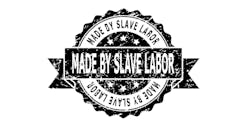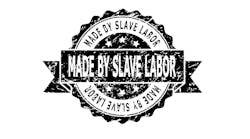While we are dealing with the still-reverberating consequences of the history of chattel slavery in this country, government policymakers are attacking the economic underpinnings of today’s versions of slavery around the world. These efforts range from administrative actions like those embarked upon by the Trump administration, to legislative proposals and United States participation in international coalitions dedicated to eradicating this evil. In almost all cases, these efforts also have had serious economic and legal implications for American businesses.
A bill introduced by Sen. Josh Hawley (R-MO) would require large companies operating in the United States to report on and eliminate forced labor in their supply chains. Called the Slave-Free Business Certification Act, it would require CEOs of companies with annual gross receipts exceeding $500 million to certify their companies’ supply chains do not rely on forced labor. It also would impose substantial penalties for violating these requirements.
“Corporate America and the celebrities that hawk their products have been playing this game for a long time—talk up corporate social responsibility and social justice at home while making millions of dollars off the slave labor that assembles their products,” Hawley declared. “Executives build ‘woke’ progressive brands for American consumers, but happily outsource labor to Chinese concentration camps, all just to save a few bucks.”
Although the bill hasn’t gone anywhere, similar bills were introduced in the House and you can expect legislators to show increased interest in the future. Legislative efforts similar to these have been adopted by the UK and European countries that already require private businesses to conduct adequate and transparent due diligence to address human rights abuses.
One state law—the California Transparency in Supply Chains Act—requires certain retailers and manufacturers doing business in that state to publicly disclose their efforts to eradicate slavery and human trafficking from their supply chains.
In the meantime, the Trump administration already has taken measures under existing laws to target modern slavery overseas. Reports about human rights abuses perpetrated against the Muslim Uyghurs in China’s Xinjiang province by the Chinese communist regime led the U.S. government to authorize the seizure of textile imports coming into this country from that region.
Earlier this year, the Department of Commerce added products made by 11 Chinese companies implicated in human rights abuses in Xinjiang to the restricted entity list. U.S. Customs and Border Protection (CBP) also issued several Withhold Release Orders (WROs) targeting goods suspected of being made with forced labor, primarily cotton and other textiles made in Xinjiang.
In July, CBP also imposed a WRO on disposable medical gloves made in Malaysia said to be products of forced labor, including debt bondage. The agency has authority to take these actions under both the 1930 Tariff Act and the 2015 Trade Facilitation and Trade Enforcement Act.
You can expect more U.S. legislation to be introduced in the future and if your company operates internationally, you already come under other countries’ laws in this regard. Resources for businesses to help meet these standards are available.
Attorneys Jesse Medlong and Eva Schueller of the DLA Piper law firm recommend that companies either create or review current policies regarding forced labor and other human rights issues in the company’s supply chain and retain a consultant to assess human rights risks. They say companies also should implement metrics with benchmarks and time-limited goals, and make sure their employees are trained in identifying human rights risks and how they should respond.
“The world continues to awaken to the persistence of modern slavery in global supply chains,” Medlong and Schueller point out. “Global enterprises that can meet these challenges ahead of regulatory requirements and proactively root out violations will establish a strong foundation for their long-term success.”




